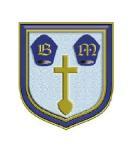PERSONAL, SOCIAL AND EMOTIONAL DEVELOPMENT
Talk about their feelings using words like ‘happy’, ‘sad’, ‘angry’ or ‘worried’.
Understand gradually how others might be feeling.
LITERACY
Use some of their print and letter knowledge in their early writing. For example: writing a pretend shopping list that starts at the top of the page; writing ‘m’ for mummy.
Write some or all of their name
Write some letters accurately.
COMMUNICATION AND LANGUAGE
Use talk to organise themselves and their play: “Let’s go on a bus... you sit there... I’ll be the driver.”
Use longer sentences of four to six words.
Develop their communication, but may continue to have problems with irregular tenses and plurals, such as ‘runned’ for ‘ran’, ‘swimmed’ for ‘swam’.
Be able to express a point of view and to debate when they disagree with an adult or a friend, using words as well as actions.
MEDIUM TERM PLANNING
Pirates Summer 2

PHYSICAL DEVELOPMENT
EXPRESSIVE ARTS AND DESIGN
Develop their own ideas and then decide which materials to use to express them.
Draw with increasing complexity and detail, such as representing a face with a circle and including details.
Show different emotions in their drawings and paintings, like happiness, sadness, fear etc.
Explore colour and colour-mixing.
Skip, hop, stand on one leg and hold a pose for a game like musical statues.
Use large-muscle movements to wave flags and streamers, paint and make marks.
Start taking part in some group activities which they make up for themselves, or in teams.
Increasingly be able to use and remember sequences and patterns of movements which are related to music and rhythm.
Match their developing physical skills to tasks and activities in the setting. For example, they decide whether to crawl, walk or run across a plank, depending on its length and width.
EYFS 3 Special People
Why do Christians believe Jesus is special?
Islam, Sikhism, Buddhism
MATHEMATICS
Develop fast recognition of up to 3 objects, without having to count them individually (‘subitising’).
Recite numbers past 10.
Say one number for each item in order: 1,2,3,4,5.
Link numerals and amounts: for example, showing the right number of objects to match the numeral, up to 10.
Make comparisons between objects relating to size, length, weight and capacity.
Understand position through words alone Describe a familiar route.
Discuss routes and locations, using words like ‘in front of’ and ‘behind’.
UNDERSTANDING THE WORLD
Talk about what they see, using a wide vocabulary. Explore how things work.
